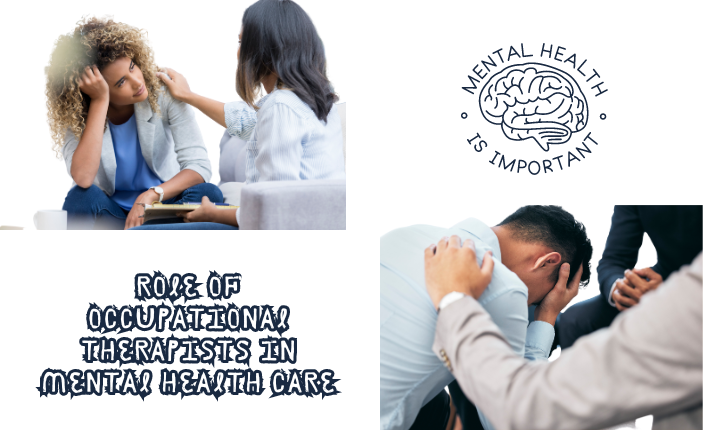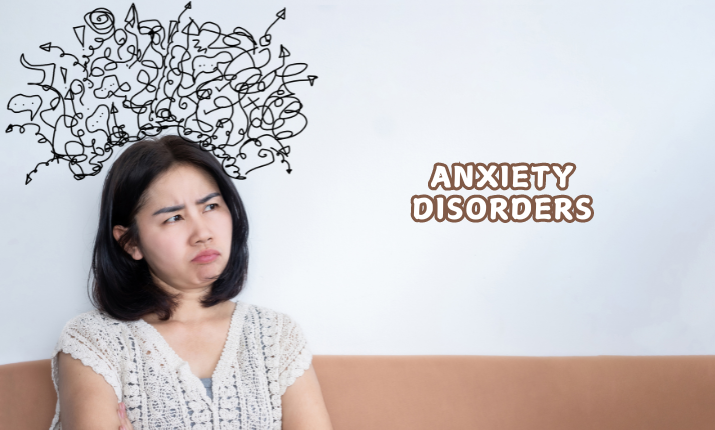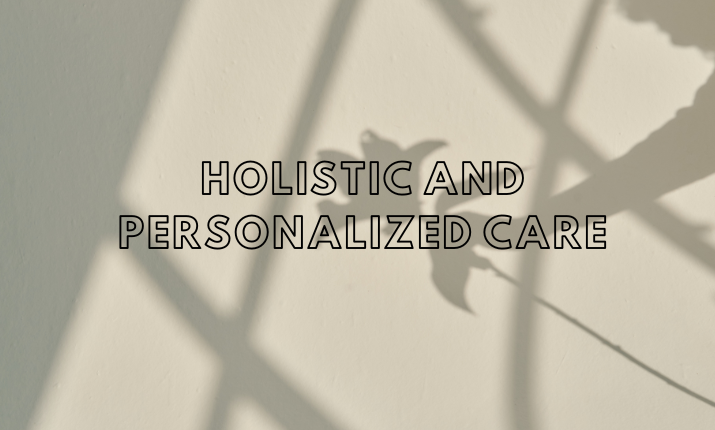Occupational therapy (OT) plays a key role in treating mental health. Although many are familiar with OT to physical rehab, it can be a helpful source for people who are struggling with mental health issues. Occupational therapy professionals benefit from people taking part in meaningful pursuits and improving their everyday functioning, which has a significant impact on the mental health of an individual.
This article will discuss the ways occupational therapy can improve psychological health. It will also discuss the different methods used and the benefits they can provide for those suffering from mental health problems. At the end of this article, you’ll understand why OT is vital to a complete mental health care plan.
What is Occupational Therapy for Mental Health?
Occupational therapy (OT) is a holistic approach to helping people achieve equilibrium and well-being in their everyday lives. Regarding mental well-being, OT focuses on helping clients develop coping strategies, regain their life skills, and engage in everyday activities that build a sense of purpose and autonomy.
Therapists work with occupational therapy clients to help them deal with emotional, psychological, and cognitive difficulties and assist them with prescribed activities and therapeutic interventions. The aim of the therapy is to increase individuals’ ability to deal with anxiety, improve social interactions, and carry out tasks that enhance mental and emotional well-being.
The Role of Occupational Therapists in Mental Health Care

Occupational therapists who specialize in mental health possess a unique set of skills that focus on improving the quality of life of those who suffer from mental health problems. Therapists evaluate a person’s mood, cognitive abilities, and physical health in order to create a customized treatment strategy.
Essential roles for occupational therapists in the field of mental health care are:
- Evaluation of Needs for Mental Health: Occupational therapists analyze patients’ mental health issues and how they affect their lives, relationships, work, and leisure activities.
- Personalization of Goals: Therapy goals are adapted to each person’s specific needs and challenges to help them gain control of their emotional and mental health.
- Achieving Daily Function: Therapists collaborate with clients to teach them practical knowledge, such as managing a schedule, self-care, socializing, and navigating school or work settings.
- Health Promotion: Occupational therapists help patients establish positive habits that improve mental health, such as stress management methods, healthy coping strategies, and regular engagement in activities.
Occupational Therapy Techniques for Mental Health Treatment
occupational therapists use a range of methods to deal with mental health concerns. Depending on their specific requirements and therapeutic objectives, they adapt these techniques to the individual’s needs. Here are some of the most common methods employed in occupational therapy to treat mental health
1. Cognitive Behavioral Therapy (CBT) Techniques
Occupational therapists typically incorporate CBT strategies to help clients identify and alter negative thought patterns. CBT is focused on the relationship between feelings, thoughts, and behavior and on how transforming negative thought patterns can improve mental health.
OTs can benefit clients’ navigation:
- Identifying harmful or negative thinking patterns
- Thinking more clearly and coping with stress
- Involving in an activity that challenges harmful beliefs
2. Mindfulness and Relaxation Techniques
The practice of mindfulness is often employed within occupational therapy to help clients become more conscious of their thoughts and feelings at the moment. Through mindfulness, patients can reduce anxiety, manage anxiety, and boost their emotional control.
The most commonly used relaxation techniques include:
- Exercises in deep breathing to help calm the body and mind.
- A progressive muscle relax to ease tension
- Imagery guides for creating mental pictures that help promote happiness and relaxation
3. Sensory Integration Therapy
In the case of people who have heightened sensitivity to stimuli from the environment (common in PTSD, anxiety, PTSD, and autism), sensory integration therapy can prove to be extremely beneficial. This OT method involves actions that benefit people by helping them process sensory information more rationally.
Sensory integration therapy is focused on:
- Experiments with various sensual experiences (e.g. touch, sound, or movement)
- Helping people control their reactions to stimuli that stimulate their senses.
- Utilizing instruments for sensory enjoyment (weighted blankets and fidget devices) in order to provide a tranquil space
4. Life Skills Training
One of the main objectives of occupational therapy in psychological health and wellness is to benefit clients by learning or regaining new life talents that enable clients to function independently. Life skills training includes:
- Management of time knowledge: Helping clients establish routines and manage their time.
- Personal hygiene and care: Teaching or reinforcing personal hygiene habits like dressing, grooming, and keeping clean.
- social abilities growth: Assisting individuals in developing interpersonal relationships and increasing communication and confidence in social situations.
- Job talent education: Therapists could favor job-related preparation, such as resume writing and interview preparation, for individuals looking to resume or get a job.
5. Art and Creative Therapies
Artistic activities like painting, drawing, or making crafts are effective therapeutic tools for occupational therapy. These activities let people communicate their feelings through nonverbal means, frequently aiding them in processing difficult feelings.
Therapists for occupational therapy use creativity therapy for:
- Reduce anxiety and stress by engaging in expressive activities
- Help promote Relaxation and release of emotional tension
- Enhance focus and focus on positive outlets
6. Activity-Based Therapy
The therapeutic value of an activity is the importance of participating in meaningful activities that grant structure, pleasure, and a sense of achievement. The activities could include cooking, gardening, or even recreational sports. They encourage people to:
- Increase self-esteem by achieving your personal goals
- Enhance mood through physical activity and social interaction
- Help improve the ability to solve problems abilities in real-world scenarios
7. Group Therapy
Occupational therapists can organize group therapy sessions, which offer assistance in education, training, and building up skills in a group context. Group therapy is especially beneficial for those struggling with social isolation as it assists them in practicing communication skills, sharing their experiences, and building a sense of community.
Conditions that Benefit of Occupational Therapy in Mental Health
The benefits of occupational therapy are for a variety of mental health issues. The most frequently treated ailments treated are:
1. Anxiety Disorders

People with anxiety are often faced with excessive worry and fear or avoidance habits that can cause problems in their daily lives. OT methods, such as CBT and mindfulness, can help people deal with their anxiety as well as increase their ability to take part in everyday activities.
2. Depression
Therapists working with occupational therapy assist those suffering from depression, aiding them to establish routines, set achievable goals, and take part in activities that are meaningful and can boost their mood. Life abilities training, creative therapies, and sensory integration are common practices.
3. Post-Traumatic Stress Disorder (PTSD)
For people suffering from PTSD, occupational therapists concentrate on teaching coping mechanisms as well as relaxation techniques to deal with triggers. Sensory integration therapy may be very effective for people who respond more to stimuli that stimulate the senses.
4. Schizophrenia
Occupational therapy is a must for people suffering from schizophrenia since it assists them in increasing their social talent, handling everyday tasks, and keeping working. Therapists give assistance with managing medication and symptoms like hallucinations and illusions.
5. Bipolar Disorder
OT assists people suffering from bipolar disorder in controlling their mood swings by establishing routines, teaching them how to manage stress skills, and assisting them to keep their balance through structured activities.
6. Substance Use Disorders
Occupational therapy plays a crucial part in treating addiction-related disorders, focusing on restoring the daily routine, addressing the root causes of mental health issues, and aiding individuals in reintegrating into society.
Benefits of Occupational Therapy for Mental Health
Occupational therapy can help provide many advantages for those suffering from mental health problems. These benefits extend beyond symptom management and seek to increase the overall health and overall quality of life.
1. Improved Daily Functioning
Focusing on living skills, occupational therapy therapists help clients develop or recover the ability to complete important tasks like taking care of themselves, managing their time, and establishing a routine. This can dramatically increase an individual’s independence and self-sufficiency.
2. Enhanced Emotional Regulation
Techniques like CBT mindfulness, meditation, or relaxation routines benefit people control their emotions, decreasing the intensity and frequency of mental health problems. This can lead to more effective strategies for dealing with anxiety, stress, and mood fluctuations.
3. Increased Social Interaction
OT encourages social involvement through groups, social knowledge training, and activities-based therapy. These interactions benefit people by boosting their interactions’ quality, increasing confidence, and decreasing feelings of loneliness.
4. Better Stress Management
Occupational therapists train clients on how to deal with stress effectively by using relaxation strategies, cognitive restructuring, or sensory regulation. The ability to master these abilities aids individuals in navigating life’s difficulties without becoming overwhelmed by depression or anxiety.
5. Higher Self-Esteem and Confidence
People develop an improved sense of achievement and self-esteem when they set and achieve personal goals. Engaging in activities that provide happiness and fulfillment can improve confidence and drive.
6. Holistic and Personalized Care

OT provides a comprehensive approach to treatment for mental illness that addresses the emotional, physical as well as cognitive requirements of every person. The personalized treatment helps patients feel comfortable and secure throughout their journey to recovery.
Conclusion
Occupational therapy is a valuable source of treatment for mental health issues. Through various methods, occupational therapists help patients regain control of their lives, develop ways to cope, and engage in meaningful activities to improve mental health. Whatever the method, whether it’s life abilities training, sensory integration, or cognitive-behavioral strategies, OT empowers individuals to manage their mental health issues with confidence and strength.
Integrating occupational therapy into mental health treatment plans could significantly improve people’s lives, emotional regulation, and general living levels. By providing individualized, patient-centered therapy, occupational therapists play an essential role in helping patients achieve lasting mental wellness.
FAQs
What’s the primary goal of occupational therapy for the field of mental wellness?
Occupational therapy’s main focus in mental health and wellness is helping people develop life skills, manage their daily routines, and improve their mental health through targeted, goal-oriented intervention.
What can occupational therapy do to benefit from anxiety?
Occupational therapy assists people suffering from anxiety by teaching coping strategies such as relaxation techniques, meditation, and mindfulness techniques that reduce the symptoms of anxiety and increase their capacity to function in daily life.
Does occupational therapy work in treating depression?
Yes, occupational therapy is very effective in treating depression through providing routine, encouraging participation with meaningful pursuits, and educating abilities to control depression and negative thinking patterns.
Does occupational therapy benefit people suffering from PTSD?
Occupational therapy can be beneficial to those suffering from PTSD through the treatment of triggers, teaching strategies for coping, and, together, sensorimotor integration in order to reduce stress and hyperarousal.
Who is a suitable person to be a candidate for occupational therapy in the field of mental health?
Anyone suffering from mental health problems that affect their daily life and social interactions or emotional regulation could benefit from occupational therapy.
